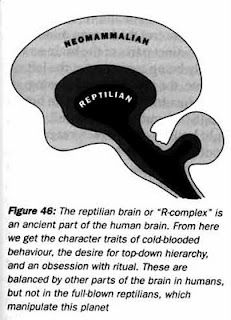Life at either end of any spectrum is mostly untenable.
 |
| Life at either end of most any specrrum can be untenable. |
Although that underlines and reinforces populism, it doesn’t necessarily mean the other, who might be simply a protestor or a mischief maker, is mistaken in their beliefs.
They are, in the minds of some, iconoclasts; therefore being people who challenge traditional beliefs, values and customs and in disturbing populism they are frequently forced to the extremes of the spectrum.
Having listened to many debates about climate change, it is one of those conversations that almost immediately dumps people at the extremes of the spectrum – to participate you are forced to those extremes declaring yourself a believer or a skeptic for no-one, it seems, can logically, and comfortably, walk the middle ground.
That became clear recently when listening to ProfessorGeoffrey Blainey talk in Shepparton about climate change, its impact nationally and on the
The professor had a wonderful historical argument, that being as it should for he is a noted Australian historian, but that view, as sound as it was, overlooked modern science that illustrates, conclusively, the existence of significant changes to the earth’s climate.
It was interesting to sit in the Harder Auditorium at Shepparton’s
For too long it seemed people had been forced to the extremes of the debate and driven into that untenable position of either being for or against climate change.
In his friendly and knowledgeable way, Prof Blainey allowed people to stroll, intellectually and metaphorically at least, in the comforting middle ground, some distance from those untenable extremes.
Personally, the professor’s views were somewhat discomforting as he cast some doubt on the modern reasons for climate change and encouraged those in the audience to give even more weight to historical arguments.
Being a thinker of particular clout in our national community, his views that brought doubt to the modern understanding of climate change would be seized upon by skeptics and used to further leverage their argument that the climate debate it a fraud – it is not, and to interpret the eminent man’s views that way would do him disservice, or maybe it wouldn’t?
Skeptics thrive on such doubt and the subsequent confusion they sow further delays the action this human induced dilemma demands.



